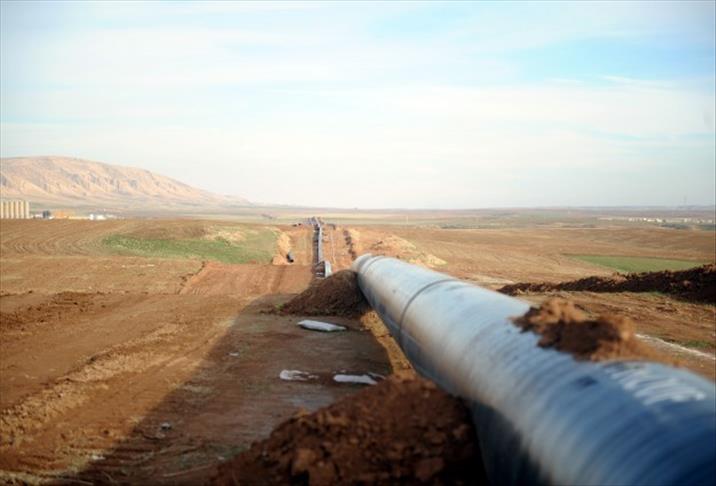
By E. Gurkan Abay
ANKARA
EU countries have started distributing shale gas licenses to private companies, aiming to reduce the dependence on Russian natural gas, amid the crisis in Ukraine that sparked EU’s efforts to increase its energy security.
Europe will try to formulate ways to reduce its "concerning" level of dependency on Russian natural gas, at the EU March 20-21 summit in Brussels, according to draft summit documents. Local energy sources such as shale gas should be further exploited, the papers also state. England, Poland, Romania and Ukraine were the first countries to start distributing licenses for the exploration and exploitation of shale gas.
European Commission spokeswoman Sabine Berger told Anadolu Agency that the Commission acknowledges the potential importance of the exploration of shale gas in the EU as a tool to further diversify its energy supply.
“But it’s a purely national decision by the EU member state to opt for shale gas or not,” she said, adding that the commission does not have any plans to assist the private sector financially for shale gas exploration and exploitation.
The Commission will continue facilitating the exchange of environmental information of shale gas projects, Berger explained, and from December 2014 onwards, member states will also inform the Commission each year about measures that they have put in place.
Recently, the European Commission has loosened regulations on shale gas and left the decision on environmental issues to member countries.
- Poland’s shale gas reserves are the largest in Europe
According to U.S. Energy Information Administration (EIA), Poland’s shale gas reserves are the largest in Europe, with a potential 4.1 trillion cubic meters. Keen to make use of this potential, Poland enacted a law in March 11, which exempts taxes on shale gas exploitation until 2020.
France, second only to Poland, has technically recoverable reserves of 3.8 trillion cubic meters. However, the hydraulic fracturing technique which is used in shale gas exploitation, is currently banned in France.
In 2012, France’s President Francois Hollande promised to reduce the share of nuclear power in electricity generation from 75 to 50 percent. Shale gas is seen as a potential candidate to fill the energy supply gap.
- Hydraulic fracturing to extract shale gas
Hydraulic fracturing, or commonly known as “fracking,” rocks under 2 to 5 kilometers under the soil are fractured by using high pressured chemical waters sprayed out of horizontally installed pipes. After the fracturing ends, the fractured rocks release gas that migrates to wells.
The fracking method is the main reason behind Europe’s hesitation on the extraction of shale gas. Experts fear that the fracking technique under the soil could pollute the underground water systems and the soil. Additionally, it is also feared that the fracturing process might trigger earthquakes.
Since EU environmental legislation developed at a time when high volume hydraulic fracturing was not used in Europe, certain environmental aspects associated with the exploration and production of fossil fuels involving this practice are not comprehensively addressed in current EU legislation.
englishnews@aa.com.tr


